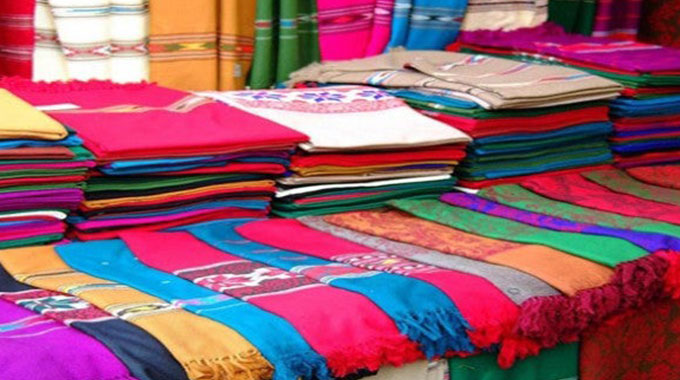Clothing manufacturers bemoan unfair competition

Oliver Kazunga, Senior Business Reporter
LOCAL clothing manufacturers have expressed concern over unfair competition from some of their counterparts within Sadc who are exporting into the region outside the Sadc Trade Protocol on Trade.
Under the Sadc Protocol on Trade, there is a double-transformation rule, which requires that for one to export into the region, the manufacturer should produce goods using locally manufactured fabric or should source it within Sadc.
However, it emerged during a meeting organised by the Zimbabwe Revenue Authority (Zimra) in Bulawayo last week that some clothing manufacturers from Sadc were exporting their products in the region against Sadc Trade Protocol guidelines.
“With the Sadc double transformation, it’s just unfair because if you go to trade expos in Botswana for example, they are exporting using Sadc trade agreements.
“But you can’t tell me that Botswana is doing double transformation.
“When you go there and request for their Sadc certificate, it’s not like ours that Zimra issues,” said an official from Carousel, one of the surviving clothing firms in Bulawayo.
The official said clothing manufacturers in Botswana were producing garments using fabric sourced from outside their country or within Sadc and that the Botswana Unified Revenue Service was granting them export permits.
“But with Zimbabwe, you (Zimra) follow it to the letter because of integrity but this then cheats us as local manufacturers.
“We cannot export using Sadc certification but they (Botswana) can export to Zimbabwe, Namibia and other countries after buying the fabric from China,” said the official.
The official said Botswana Unified Revenue Service just gives the companies the Sadc certificate to export.
The official said this was the same with some South African manufacturers.
The official said trade agreements should also benefit Zimbabwean companies and not just foreign companies as is the case now.
“We are going to the Botswana expo next week and we know that’s what happens, they have Burs-Sadc things for their own companies and they are exporting getting forex and when you come to our Zimra they just tell you that you do not qualify.”
Responding to the concerns, Zimra station manager for Bulawayo Port Mr Nicholas Nkomo said Zimbabwe could not take the route similar to Botswana fully aware that the neighbouring country was flouting the Sadc Protocol on Trade.
“I don’t think we need as a country to put our integrity to trial.
“We cannot follow what Botswana is doing when we know that it’s off the requirements of the protocol, we cannot do that.
“But Botswana can be engaged so that they are made aware of how they are violating the protocol and that is done by relevant ministries,” he said.
Responding to questions from the floor, Zimra Bulawayo Port supervisor for rebates, bonds and excise Mrs Makhosazana Kuture said of late Madagascar was manufacturing fabric and this was an opportunity for local clothing manufacturers to enjoy the economies of scale that will allow them to export within Sadc as that country was part of the region.
“For products to be manufactured for local consumption you can import from China but not for products destined for the export market.
“In addition to Madagascar, there is Mauritius, which is manufacturing the fabric as well.
“They are also in the Sadc. Importing the fabric from China might be cheaper but for the sake of Sadc certification we have to import from the region,” said Mrs Kuture.
The local clothing manufacturers among other issues also expressed concern over the time frame that was being taken to register bonded warehouses.
It emerged that the registration of a bonded warehouse was taking a month to be finalised and this was crippling productivity especially for products that were being manufactured based on orders.
Mr Nkomo responded saying the registration process was agreed to between the Ministry of Finance and Economic Development, Zimra and the Clothing Manufacturers Association. For the process to be made shorter Zimra and the association will have to engage afresh over the process.
“At our level as I said we are merely implementers and as such we need the best Statutory Instrument so that it removes some of the barriers,” he said.
Mr Nkomo explained that clothing manufacturers who import the fabric need to clear their products before they reach the country’s ports of entry to curb delays at border posts.
“Delays in the clearance of goods can be avoided through clearing the goods before they arrive in Zimbabwe.
“While they are still in South Africa, you can clear them so that when they come the paper work has already been done.
“Most of us want to work on the paper work when the trucks are parked at Beitbridge hence the delays,” he said.
Meanwhile, Zimra chief corporate communications officer, Mrs Inzwirashe Muwonwa, said the revenue authority has embarked on a tax payer education campaign and last week’s engagement with the Bulawayo clothing manufacturers was part of it.
“We have been doing road shows all over the country and we also decided we are going to do sector by sector as we are doing. — @okazunga











Comments